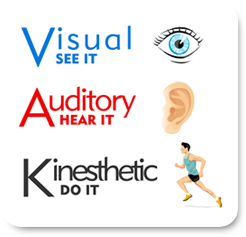- Alvin Toffler, Powershift: Knowledge, Wealth and Power at the Edge of the 21st Century
So I set up a Powtoon account not long ago. This is an animated film and presentation making website, and mighty good it is too. In the first tutorial the fella announces you have a full 7 seconds to capture the audience's attention, before they decide if it is worth watching further. I wondered to myself how long people's attention spans are for reading, or more precisely reading blogs, before they decide it's time to move on to something different? I fear I may already have overrun my attention grabbing window. It's only the hardy, or foolhardy from now on.
So for those still with me, welcome!
As a fresh faced NQT I remember vividly the experience of being enlightened, by some gnarly expert visiting our authority, that teachers had been doing teaching all wrong for years. That students needed to have their lessons delivered to them in a new way, which took into account their 'learning style'. This was news to me and my peers as we all sat around studiously filling in questionnaires to identify our learning styles. It made perfect sense at the time. And who were we to disagree with some such educational Goliath? Even if we had suspected there was something not quite right about it.
So we toddled off back to our schools and dutifully create three different learning style activities for every lesson we teach, as if we weren't busy enough already. Which we just about managed to keep up every time we got observed, for the first year at least.
Now we are told this was misguided (which is handy, because in the form it was first presented to me, it turned out to be pretty unsustainable). Now we are told that it isn't actually how learning works at all. And yet, a huge proportion of people (82% - find out more here) still believe the learning style myth to be true. This has been learnt, assimilated and then entrenched into popular belief. How long before society manages to 'unlearn' this concept? Then how much longer to learn that everybody uses all methods and it depends on what is being learnt, as to which method is employed? And then, how much longer to unlearn that actually, even this is not exactly how it works but....? (Of course this hasn't happened yet, but it probably will).
This is a specific educational example of learning, unlearning and relearning. But I truly believe that in their working lives, much of the true success of our students will depend upon their adaptability. Indeed, this has always been the case through human history. But as the pace of change seems to be accelerating, examples of the increasing usefulness of this ability are already apparent.
Recently, in my school, we migrated from an Outlook based email solution to a Gmail one. This was carefully planned for and orchestrated. Colleagues' comfort levels with the new email system were measured, a variety of support put in place, and a number of training sessions laid on. Some folks were so far ahead they could have run the sessions themselves, others neatly switched in line with the programme, and still others are yet to come to terms with labels and filters months after the event. I wonder what impact this has had on each group's effectiveness since the switch?
Recently, in my school, we migrated from an Outlook based email solution to a Gmail one. This was carefully planned for and orchestrated. Colleagues' comfort levels with the new email system were measured, a variety of support put in place, and a number of training sessions laid on. Some folks were so far ahead they could have run the sessions themselves, others neatly switched in line with the programme, and still others are yet to come to terms with labels and filters months after the event. I wonder what impact this has had on each group's effectiveness since the switch?
In the recent past so much effort was put into things like 'learning styles' and the much maligned 'brain breaks' etc, I wonder how long before our Gmail training becomes so equally old fashioned and obsolete? When we communicate by using devices that we dictate to (still can’t get these to work reliably for me yet!) and then devices that even read our minds to compose 'thought messages', the hours we spent learning and teaching a new way to type a message will seem quaint indeed.
 |
| http://www.learning-mind.com/mind-reading-device-can-convert-thoughts-into-words/ |
This makes me wonder, how much have I learnt in the last year that I will need to unlearn, how much have I taught, that will need unteaching, and how many things will I need to relearn this year?
Voice recognition? So twentieth century, Sir.



Have you looked much at BLP (Building Learner Power)? Essentially shifting the responsibility of adapting learning styles to the learner themselves? Seems like a more logical approach of preparing students for future life situations (higher education, employment, etc)
ReplyDeletewww.buildinglearningpower.com/about/what-is-building-learning-power-about/